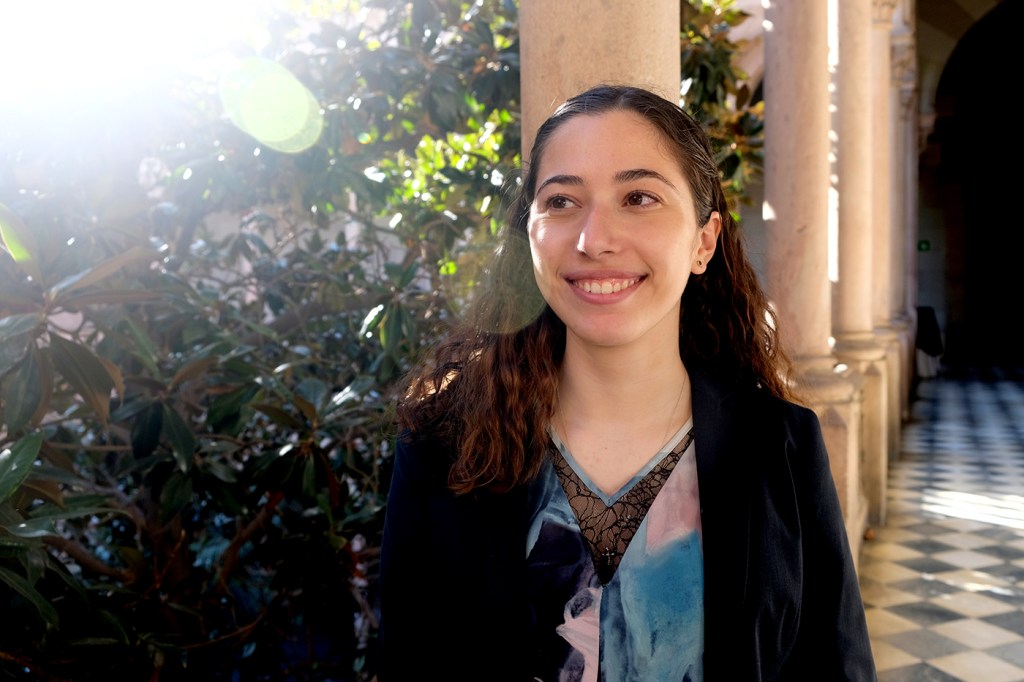How has the Mafia changed the architecture of Sicily?

When people typically think about the Italian Mafia, they generally imagine violence and extortion. Most people would never walk the streets of Sicily’s capital, Palermo, and associate the parks and public spaces with organized crime.
But Paloma Socorro, who will travel to Palermo in September under the U.S. Fulbright Student Program to study how the Mafia has influenced architecture in the city, says that the city is currently transforming public spaces using billions of dollars of seized Mafia capital.
“At its core, it’s a story of resilience,” says Socorro, who will graduate from Northeastern this spring with a degree in political science. “I’ll be studying how the city is reclaiming its history and rebuilding itself after enduring so much fear and violence. Hopefully this will be an opportunity to shed light on what has and hasn’t worked in the city.”
Through the nine-month, all-expenses-paid Fulbright program, Socorro will be working with a nonprofit organization dedicated to reversing the effects of the Mafia called the Fondazione Falcone.
“I knew I wanted to do research in Italy because my grandmother is from there,” she says. Fortunately, the application process for this grant coincided with an Italian course Socorro was taking at the time and the beginning of her senior capstone research project, which she decided to use as an opportunity to start investigating the consequences of the Mafia in Italy.
After reading a number of books about organized crime in Italy, Socorro landed on the idea of studying how architecture has been repurposed with reclaimed funds. “My capstone class was monumental in allowing me the space to explore this topic,” she says.
Socorro has taken Italian language classes since high school, but now that she has received this Fulbright award, she plans to brush up on her Italian to prepare for some of the tough conversations she anticipates having in Palermo.
“A lot of the research I’m going to be doing will be based on interviews I do with people,” she says. “The Mafia is definitely a sensitive subject in Italy, especially in Palermo where there was a lot of explicit violence.”
For example, the Italian judge and prosecuting magistrate, Giovanni Falcone, who is the namesake of the foundation, was assassinated on the highway in Palermo in 1992 when the Mafia detonated an explosive in his car.
Today, the violence is less prevalent, Socorro says, and the influence of the Mafia has waned somewhat, though their imprint on the city is still visible, culturally and in urban geography.
Socorro says she’s prepared for the research she’ll do in Italy because of some of the experiences she had at Northeastern, particularly the two Dialogue of Civilizations she did in Ghana and Switzerland.
In Ghana, Socorro says she conducted many interviews with students about the education system, skills she says she’ll need while compiling oral histories on the Mafia in Italy. In Switzerland, Socorro did extensive research using the United Nations Library, research experience she says that will help her in collecting information for her forthcoming project abroad.
For media inquiries, please contact media@northeastern.edu.





